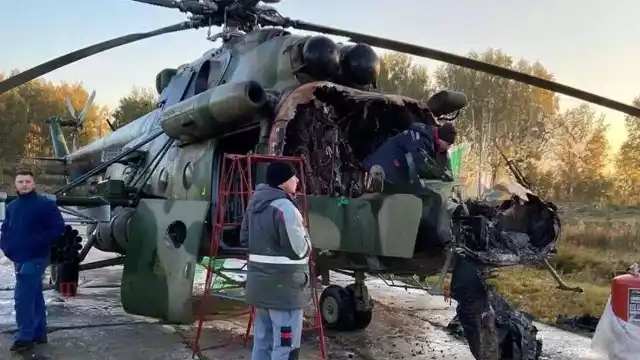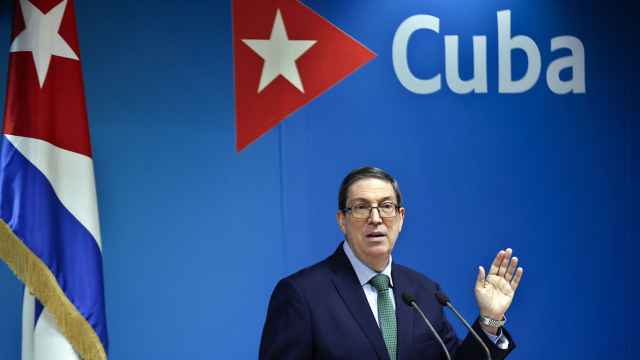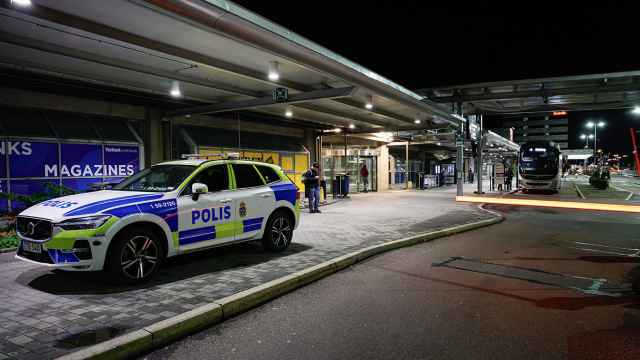Police staffing is so stretched in several Russian cities as officers are deployed to bolster security at football World Cup venues that one union leader says criminals could benefit.
Several police officers in cities across Russia said their staff were working long hours, patrols had been reduced and response times to incidents had slowed.
“The situation is very dangerous …. This could lead to grave consequences," said Vladimir Vorontsov, who represents Russia's Inter-regional Police Trade Union which has 17,000 members.
"You could get to a situation where there are simply not enough police to do the work. And the only people who benefit from that are the criminals.”
Russia has deployed thousands of police to the 11 cities hosting matches to deal with an influx of potentially rowdy fans and other security threats such as the risk of Islamist terror attacks. The tournament starts on June 14.
There are about 900,000 police officers in Russia. Reuters was unable to confirm how many are involved in World Cup security.
Vorontsov is pushing for higher basic pay and improvements in other working conditions.
In addition to the rank-and-file officers represented by his union, detectives, special units, anti-extremist specialists and the state security service will also play a major role in World Cup security. Reuters has not looked into staffing levels of these other units.
Football's governing body FIFA said it had confidence in the Russian authorities.
"FIFA has complete trust in the security arrangements and comprehensive security concept developed for the 2018 FIFA World Cup by the Russian authorities and the LOC (local organizing committee)," a FIFA spokesperson said.
"As demonstrated during the FIFA Confederations Cup last year, the high security standards already in place in Russia have been adapted to meet the specific needs of such major sporting events."
Alexei Lavrishchev, who is head of the Main Operations Control Center for Security at the World Cup, said on Wednesday that police were not overstretched, and that sufficient numbers were available to secure the tournament and cities not hosting the World Cup.
Tired and Hungry
A senior regional police officer told Reuters that officers were on call 24 hours a day and, even when not working, needed permission to leave their accommodation. He said the working day typically lasted around 14 hours.
"The food is dreadful, the conditions are spartan," the officer said.
Vorontsov said officers were paid a per diem allowance of just 200 rubles ($3.23) on top of their regular salary.
"Staff are unhappy, the actions of the commanders are ill-thought out, they [rank-and-file staff] are completely wrung out, there's a big staff shortage, no one wants to join, the treatment of subordinates is inhuman," he said.
Two other police officers gave a more positive picture. They said detectives and special units were working effectively.
Several police officers said that their deployment away from home had contributed to shortages elsewhere. Lavrishchev said police numbers in other cities were sufficient.
"The whole situation is being completely controlled throughout the country," he said.
The senior regional police officer said in some categories of rank-and-file police, 10 percent of officers had been transferred away from their home cities to World Cup venues. In certain categories, that figure was up to 25 percent, he said.
One officer from Novosibirsk told Reuters it now took police 45 or 50 minutes to deploy a unit to respond to a call about a possible crime in his home city.
A second officer in Novosibirsk said in comments passed to Reuters by Vorontsov that there used to be 12 patrol units in one district of the city, now there were three.
A police officer in Murmansk region, in comments also passed to Reuters by Vorontsov, said there was often no one left to go out on patrol, or escort prisoners. "Regions have been stripped bare," the senior regional police officer said.
A Message from The Moscow Times:
Dear readers,
We are facing unprecedented challenges. Russia's Prosecutor General's Office has designated The Moscow Times as an "undesirable" organization, criminalizing our work and putting our staff at risk of prosecution. This follows our earlier unjust labeling as a "foreign agent."
These actions are direct attempts to silence independent journalism in Russia. The authorities claim our work "discredits the decisions of the Russian leadership." We see things differently: we strive to provide accurate, unbiased reporting on Russia.
We, the journalists of The Moscow Times, refuse to be silenced. But to continue our work, we need your help.
Your support, no matter how small, makes a world of difference. If you can, please support us monthly starting from just $2. It's quick to set up, and every contribution makes a significant impact.
By supporting The Moscow Times, you're defending open, independent journalism in the face of repression. Thank you for standing with us.
Remind me later.







